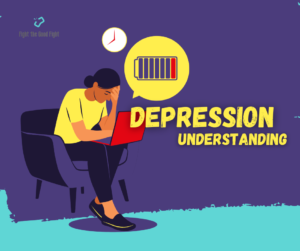Introduction:
In today’s digital era, pornography has become increasingly accessible, with its consumption on the rise. While debates surrounding the moral and ethical implications of pornography persist, there is growing evidence pointing towards its association with both animalistic and mechanistic dehumanization. These two forms of dehumanization can have significant consequences on our perception of others and the erosion of empathy and genuine human connection.
Animalistic Dehumanization:
One aspect of dehumanization linked to pornography consumption is animalistic dehumanization. When individuals regularly consume explicit sexual content, it can lead to perceiving others solely as objects of desire or sexual gratification. This objectification reduces individuals to mere vessels for fulfilling one’s carnal desires, disregarding their inherent humanity, personality, and emotional complexities. This reductionist perspective can contribute to a devaluation of human dignity and an erosion of empathy towards others, resulting in the perception of individuals primarily as sexual objects, rather than fully rounded human beings.
This animalistic dehumanization perpetuated by pornography can also lead to a distorted understanding of consent and healthy sexual relationships. As viewers are exposed to unrealistic portrayals of sexuality, it can warp their perception of what constitutes acceptable behavior, blurring the lines between fantasy and reality. Consequently, this can create a dangerous power dynamic, where the importance of mutual respect, communication, and consent is diminished, further perpetuating harmful attitudes and behaviors.
Mechanistic Dehumanization:
Another form of dehumanization associated with pornography consumption is mechanistic dehumanization. With the increasing prevalence of explicit content online, individuals are exposed to a vast array of sexual acts, often devoid of emotional connection or intimacy. This exposure can foster a mechanistic view of human sexuality, reducing it to a mere physical act devoid of emotional depth.
As viewers consume explicit material devoid of genuine emotional connections, they may begin to perceive their own sexual encounters as transactional and purely physical. This mechanistic perspective undermines the importance of emotional intimacy and meaningful connections in sexual relationships, leading to a shallow and disconnected experience. It can also contribute to the objectification and commodification of both oneself and others, as individuals seek to replicate the scripted performances seen in pornography.
Consequences of Dehumanization:
The consequences of animalistic and mechanistic dehumanization are far-reaching. These dehumanizing perspectives perpetuated by pornography consumption have been linked to a range of negative outcomes. Research suggests that individuals who consume pornography excessively may experience difficulties in forming and maintaining healthy, meaningful relationships. The objectification and commodification of others can hinder the development of empathy, trust, and emotional intimacy, essential components of any fulfilling human connection.
Furthermore, the erosion of empathy resulting from dehumanization can have broader societal implications. When individuals perceive others as objects rather than human beings with their own thoughts, emotions, and inherent worth, it becomes easier to justify exploitative behaviors, harassment, or even violence. The normalization of dehumanization perpetuated by pornography can contribute to a culture where empathy and respect for others are eroded, making it challenging to build a society based on compassion and mutual understanding.
Conclusion:
The association between pornography consumption and both animalistic and mechanistic dehumanization raises important concerns about our social fabric and the erosion of genuine human connection. Recognizing the potential harm and understanding the underlying mechanisms at play is crucial. Education and open dialogue about healthy sexuality, consent, and the consequences of pornography consumption can help counteract the effects of dehumanization.
Additionally, promoting empathy, respect, and emotional connection as essential elements of healthy relationships is vital in countering the objectifying and commodifying attitudes fostered by explicit content. By fostering an environment that values and promotes genuine human connection, we can mitigate the negative effects of pornography consumption and restore empathy, respect, and intimacy to our interactions with others.



